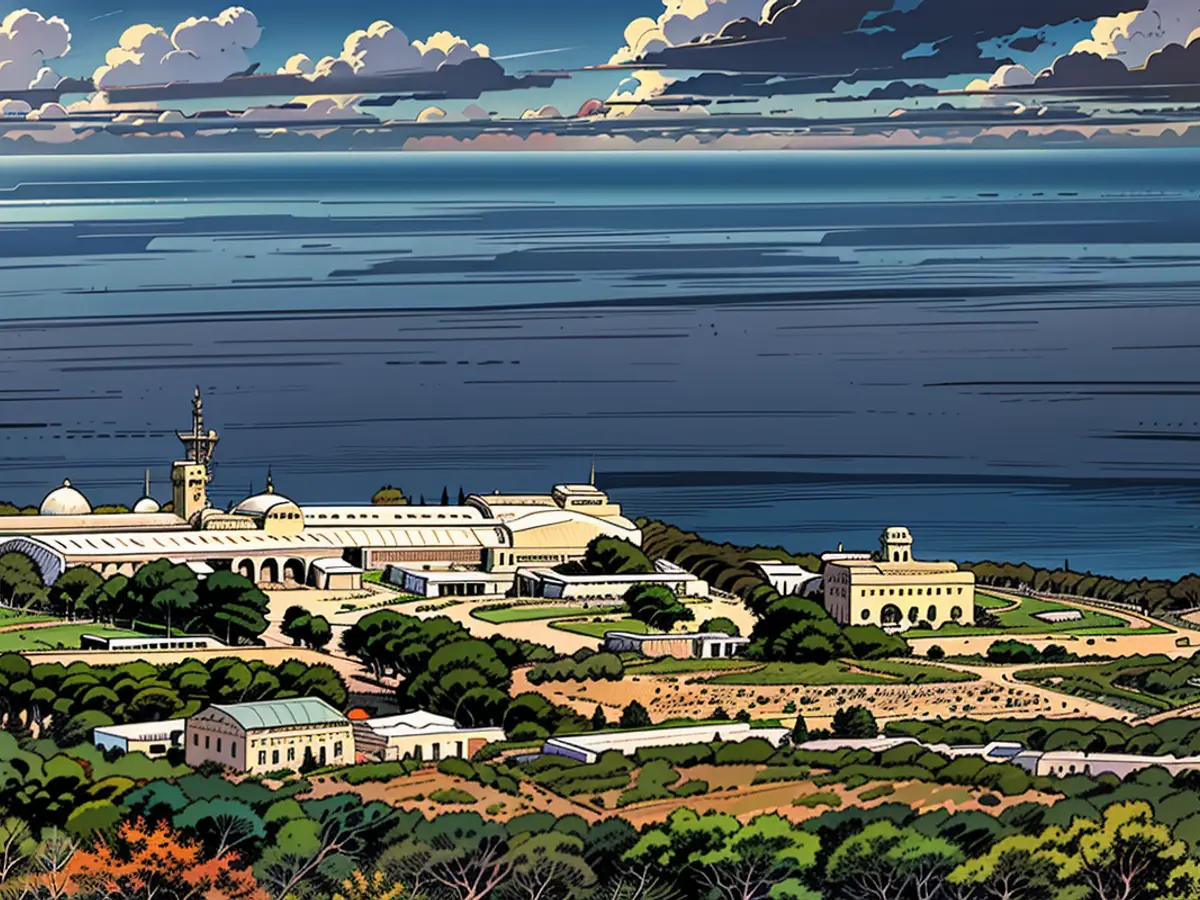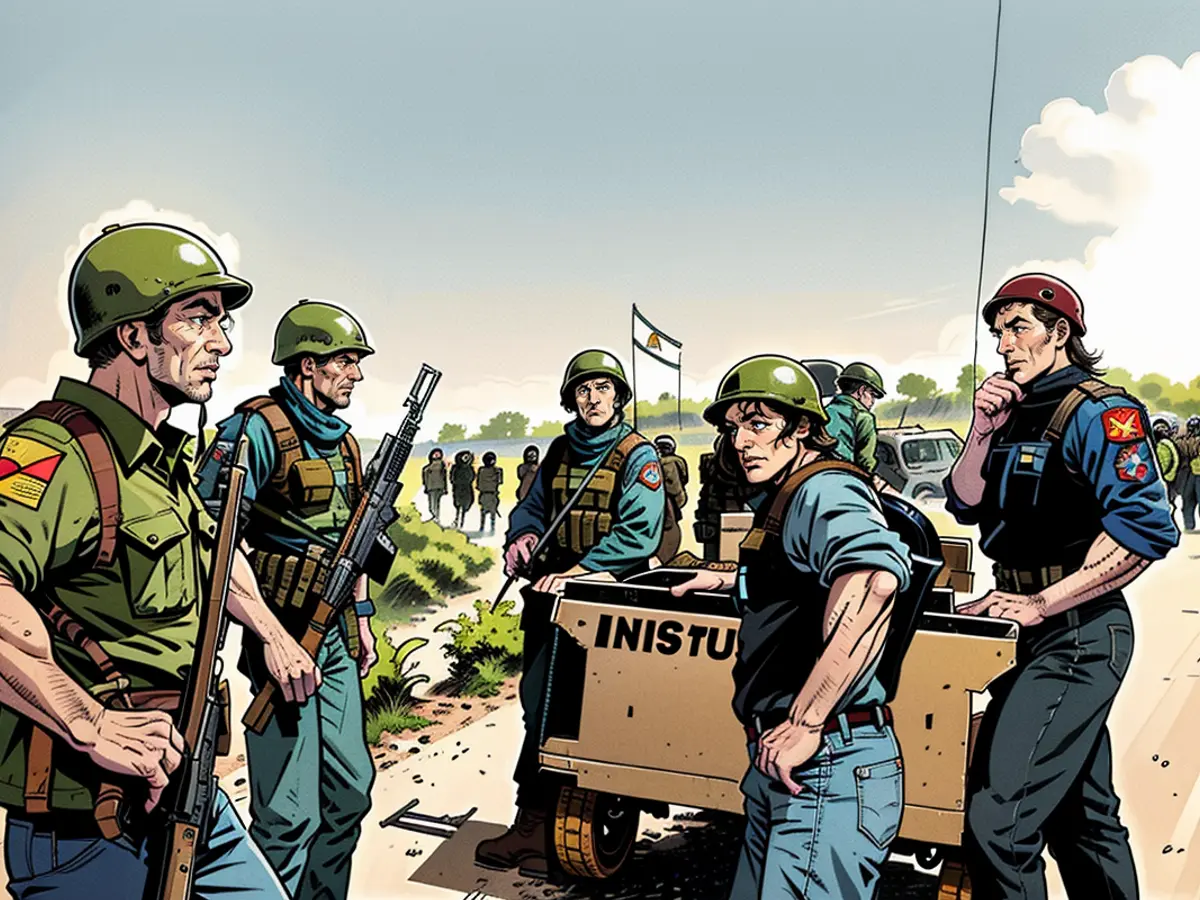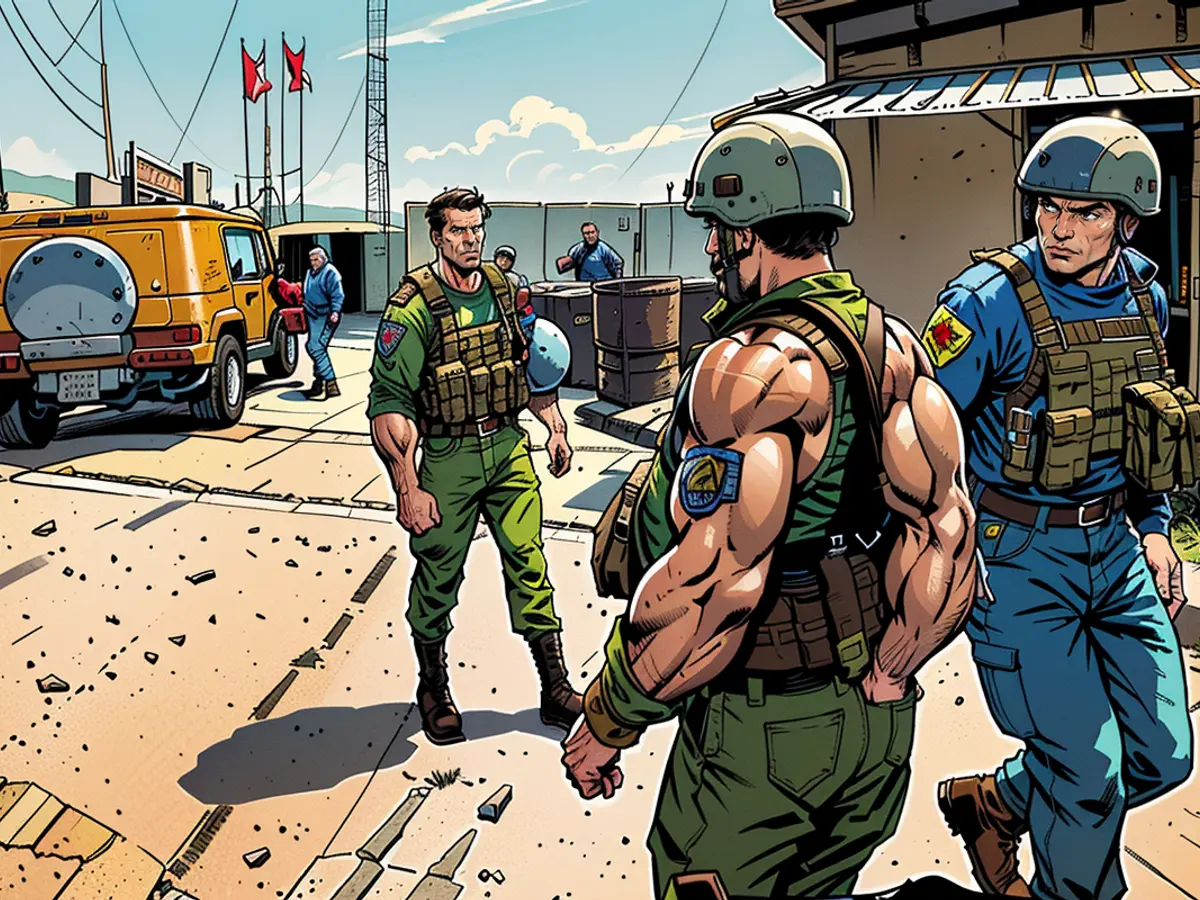UNIFIL refers to the United Nations Interim Force in Lebanon, a peacekeeping operation stationed along the border between Israel and Lebanon.
International criticism has been poured over Israel's assaults on the peacekeeping operation that has been active in Lebanon for over four decades. UNIFIL, the UN's peacekeeping mission in Lebanon, has labeled these incidents as "disturbing."
Israel has leveled accusations against Hezbollah for activities in regions bordering UNIFIL checkpoints. Israeli Prime Minister Benjamin Netanyahu issued a warning on Sunday, stating that the UN peacekeeping forces in Lebanon are in a perilous situation. He lamented the injuries sustained by certain UN peacekeepers over the past week and urged UN Secretary-General António Guterres to withdraw the peacekeepers "instantly."
Guterres declared that attacks on peacekeepers could potentially be considered a war crime, and emphasized that UNIFIL and its facilities should never be targeted. UNIFIL has reported that its troops will continue to remain in Lebanon despite the attacks.
Here's a rundown of recent events:
What transpired over the past week?
UNIFIL's Naqoura headquarters and neighboring positions have been subjected to repeated attacks by Israel.
On a Wednesday, UNIFIL reported that IDF soldiers intentionally fired at and incapacitated a UN position in Labbouneh.
Two peacekeepers were injured on a Thursday after an IDF tank discharged towards an observation tower situated at UNIFIL's headquarters, hitting it directly and causing the peacekeepers to fall.
On a Friday, two UNIFIL personnel were wounded due to two explosions that occurred near an observation tower. The IDF claimed to be responding to an immediate threat and directed UNIFIL personnel to retreat.

Later on that same Friday, a peacekeeper was shot in Naquora in the midst of "military activities," according to UNIFIL, which reported that UN buildings in Ramyah had suffered "significant damage" as a result of explosions stemming from nearby shellings.
On a Saturday, UNIFIL stated that IDF soldiers impeded a vital UNIFIL logistical movement near Meiss ej Jebel.
And in the early hours of Sunday, UNIFIL reported that the IDF had breached international law after guiding its tanks into its Ramyah post, forcefully entering the position and requesting that the base switch off its lights. The IDF later explained that one of its tanks had penetrated the post due to evacuating soldiers injured by an anti-tank missile.
Israel's actions have triggered reprimands from multiple allies, including France and the UK, who expressed their horror over reports suggesting that Israel had deliberately targeted UN bases during the past week.
What is UNIFIL?
The United Nations Interim Force in Lebanon (UNIFIL) was launched by UN Security Council resolution following Israel's initial invasion of southern Lebanon in 1978.
Its purpose was to verify the withdrawal of Israeli troops from the country, restore international peace and security, and support the Lebanese government in reestablishing its authority in the region.
In June 1982, Israel launched another invasion of Lebanon and subsequently established a safety zone within the country, which persisted until its withdrawal in 2000.

In 2000, UNIFIL established the "Blue Line," a 120-kilometer (approx. 75-mile) stretch along southern Lebanon to guarantee the complete withdrawal of Israeli troops. It serves as an unofficial border between the two countries due to their ongoing border dispute.
UNIFIL troops are responsible for monitoring border transgressions and maintaining the security of the region, which includes Hezbollah strongholds.
Despite being a peacekeeping operation, UNIFIL troops are authorized to utilize force in specific circumstances, such as self-defense, protecting civilians facing an immediate threat of violence, and safeguarding UN personnel facilities and equipment.
UNIFIL's mandate is renewed annually by the UN Security Council at Lebanon's request. The Security Council last extended the mandate until August 31, 2025.
Who comprises UNIFIL?
The mission is manned by more than 10,000 personnel representing 50 nations, a majority of whom are soldiers. Indonesia, Italy, India, Nepal, Ghana, and Malaysia contribute the most troops. Spain, China, Ireland, and France also maintain a substantial presence. Several countries contribute only a single UNIFIL soldier, such as the United Kingdom, Peru, and Nigeria.
The peacekeepers operate within a 410-square-mile area that extends from the Blue Line to the Litani River in southern Lebanon. They maintain 50 positions, with UNIFIL's headquarters situated in Naqoura in the southwest of the country.
CNN's Eugenia Yosef and Nadeen Ebrahim contributed reporting.

The Middle East region has become a focal point of international concern due to Israel's recent actions against UNIFIL, a peacekeeping mission in Lebanon that is vital for maintaining global peace and security. The world community has expressed its dismay over Israel's alleged targeting of UN bases in Lebanon, highlighting the importance of UNIFIL's mission in the Middle East.







